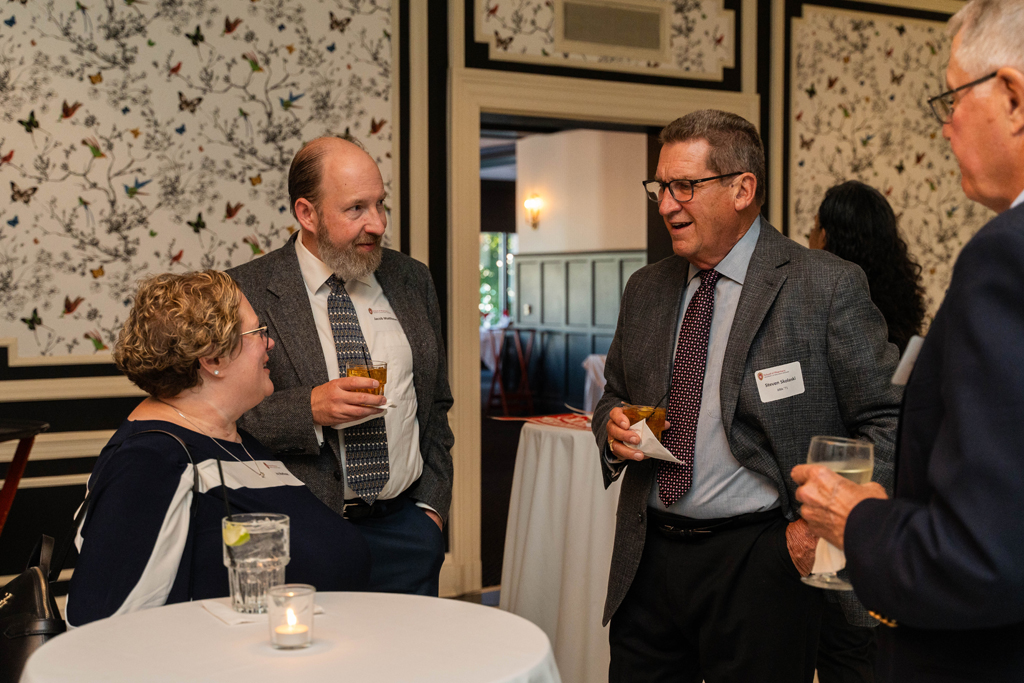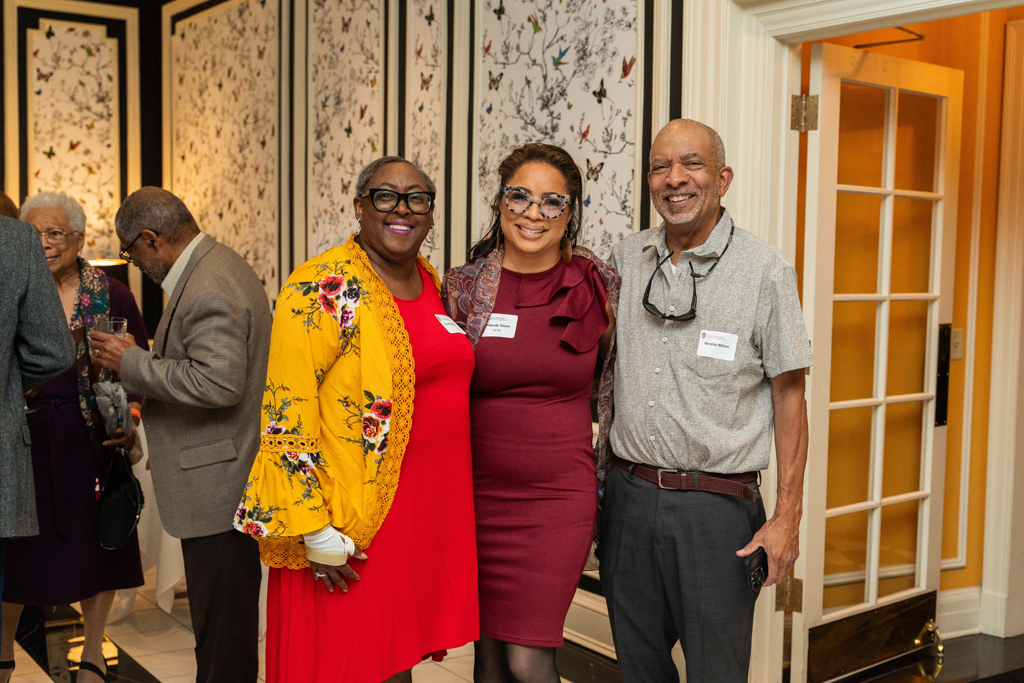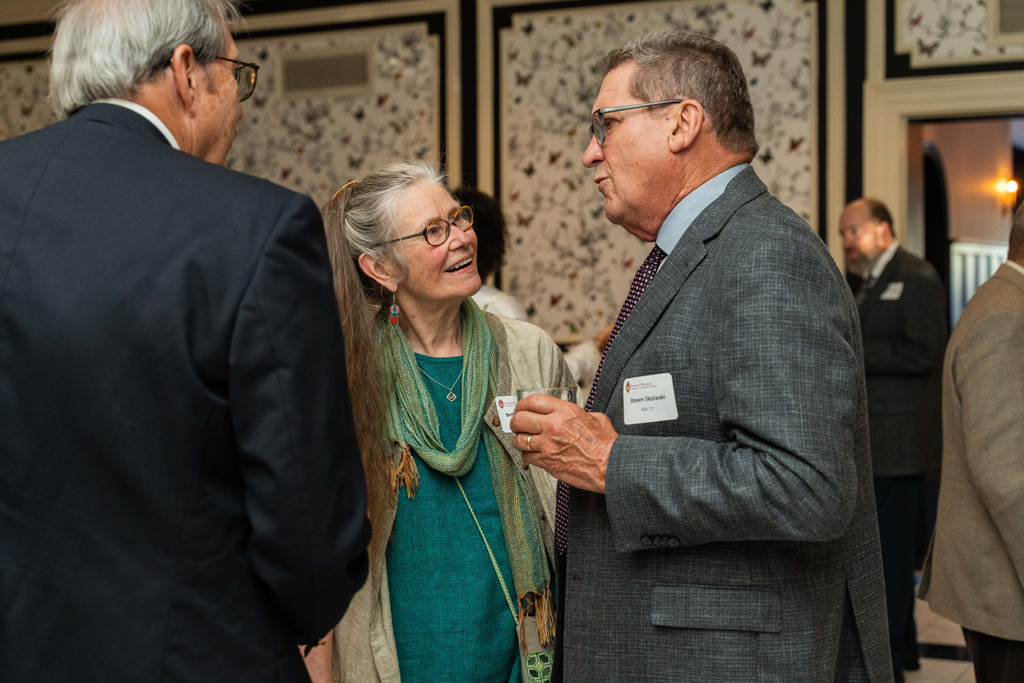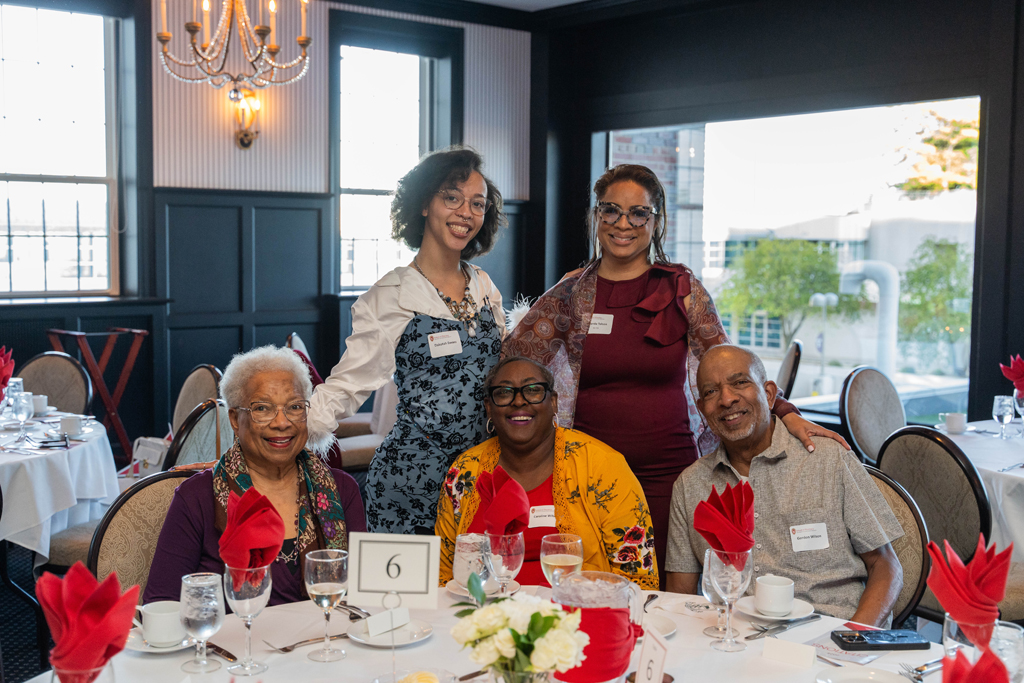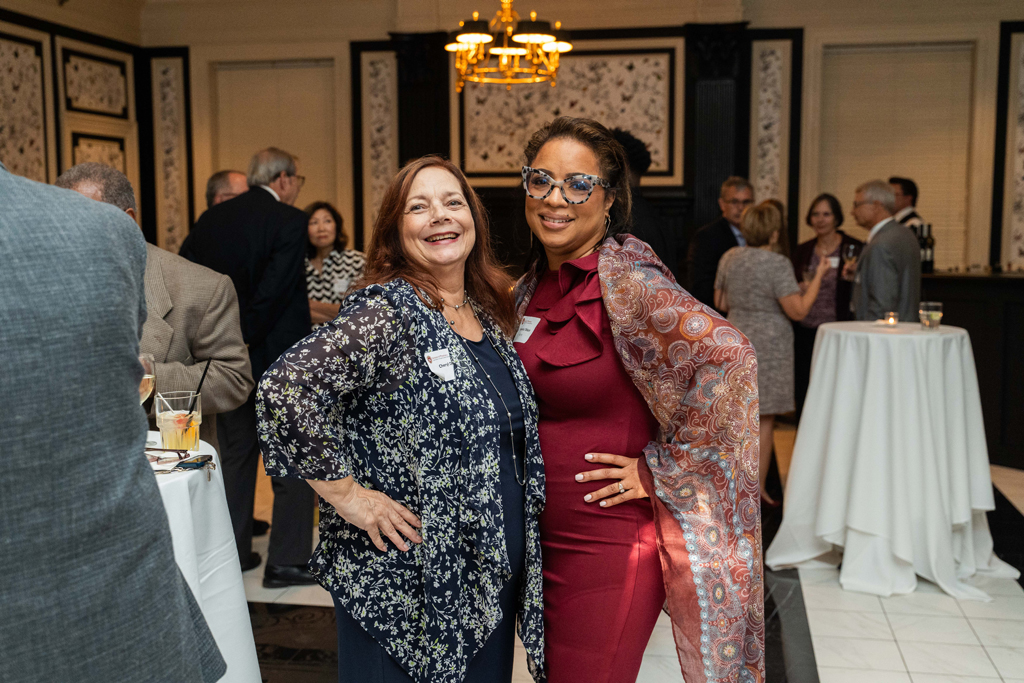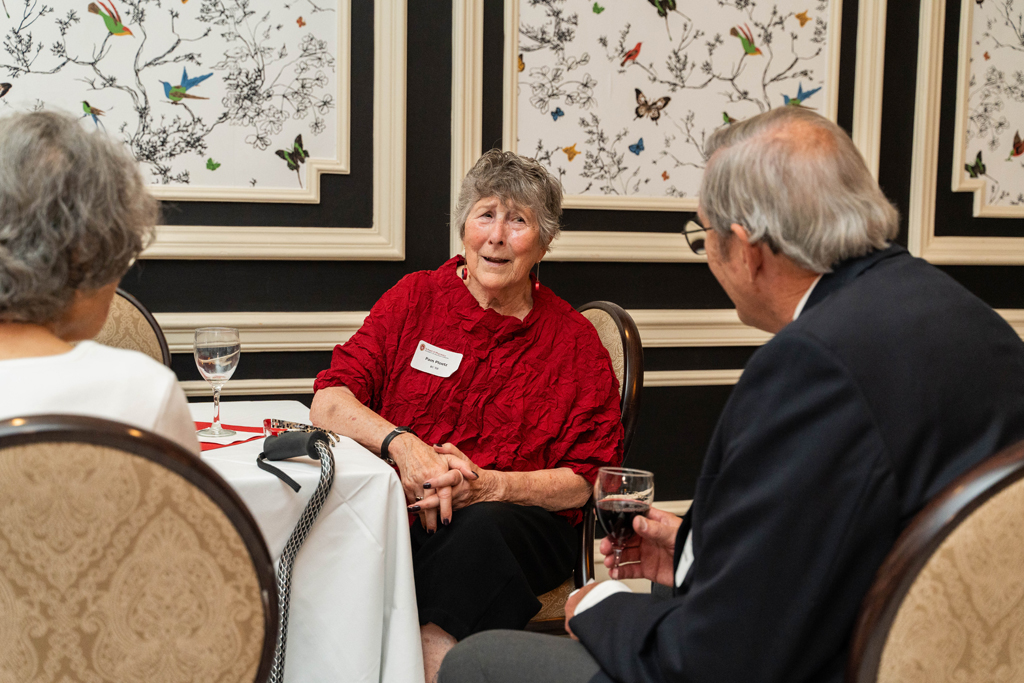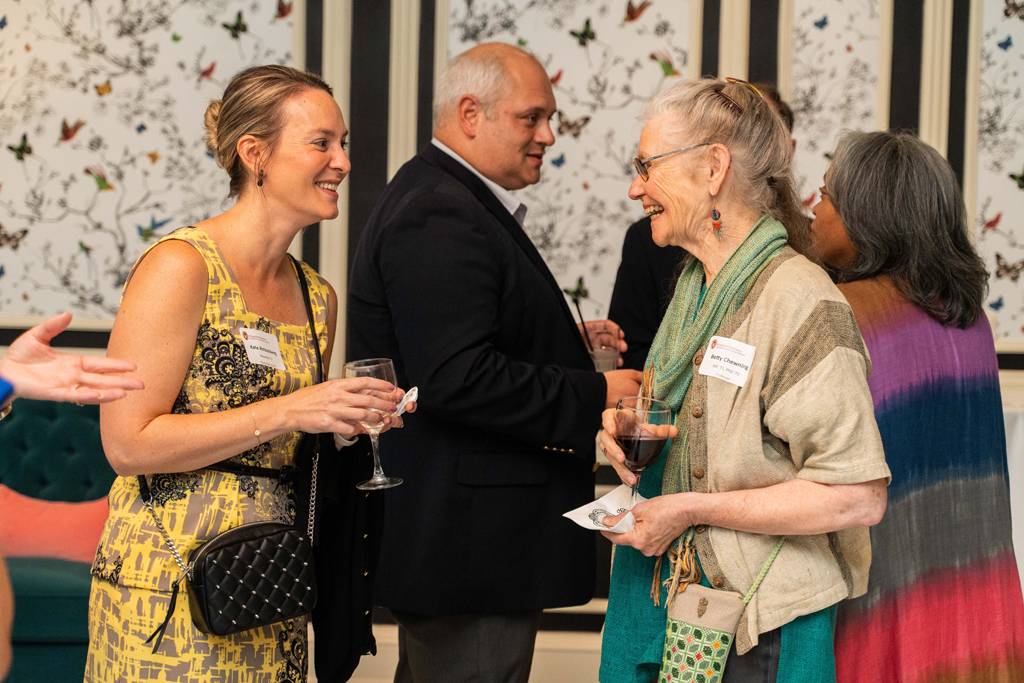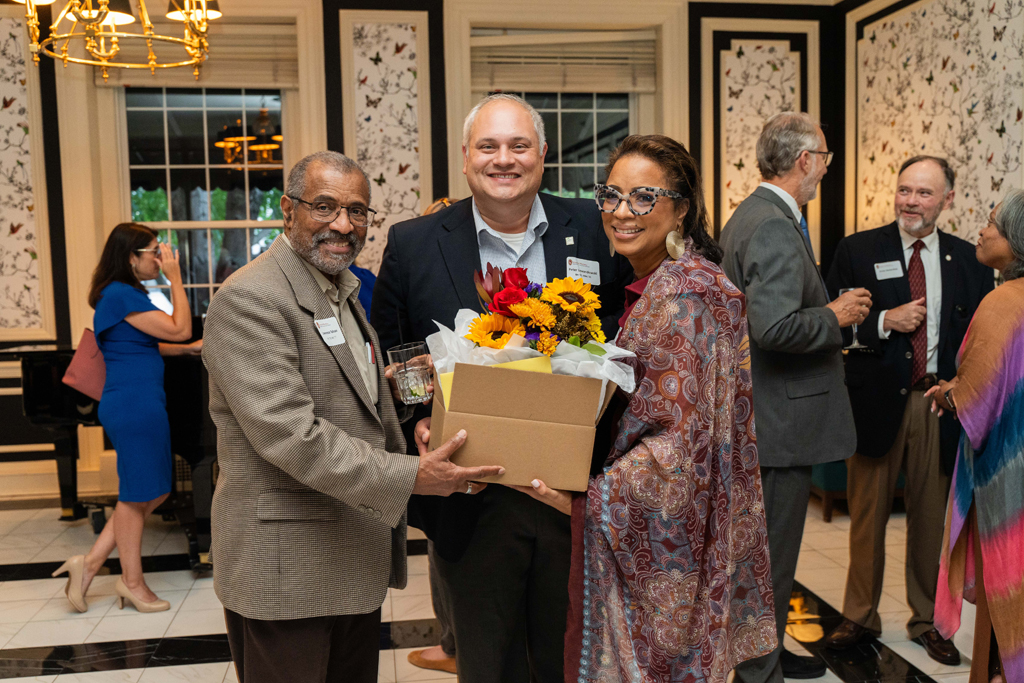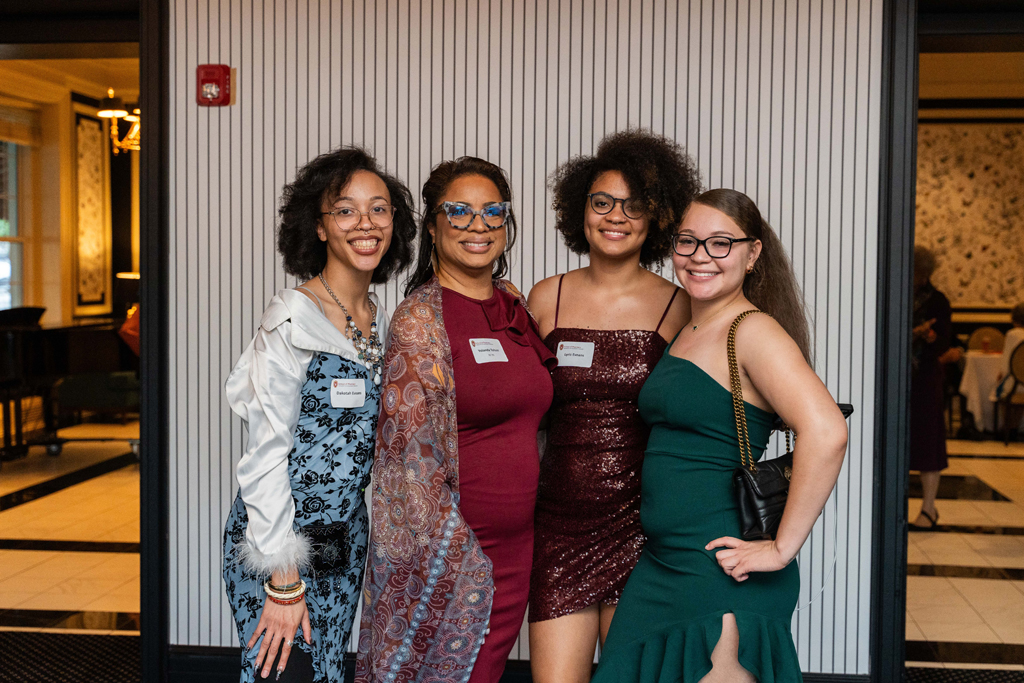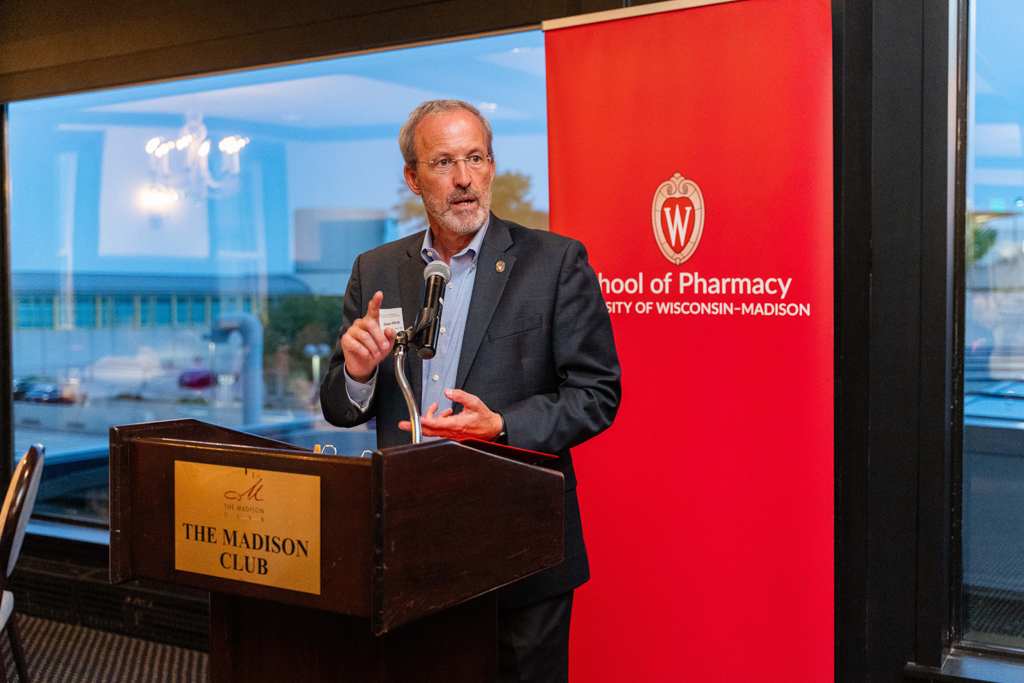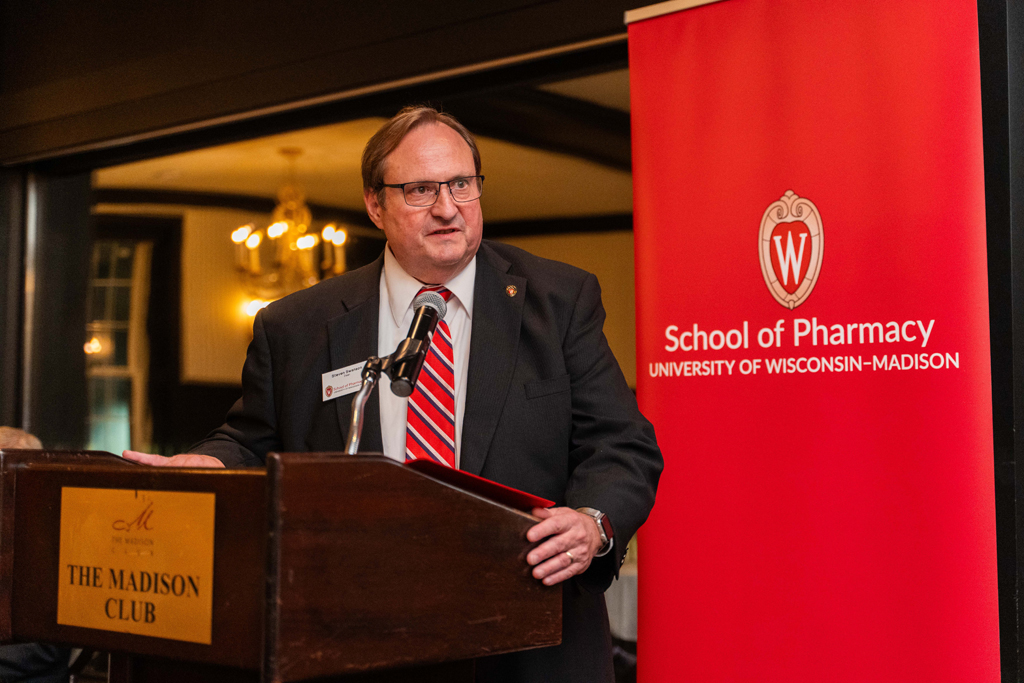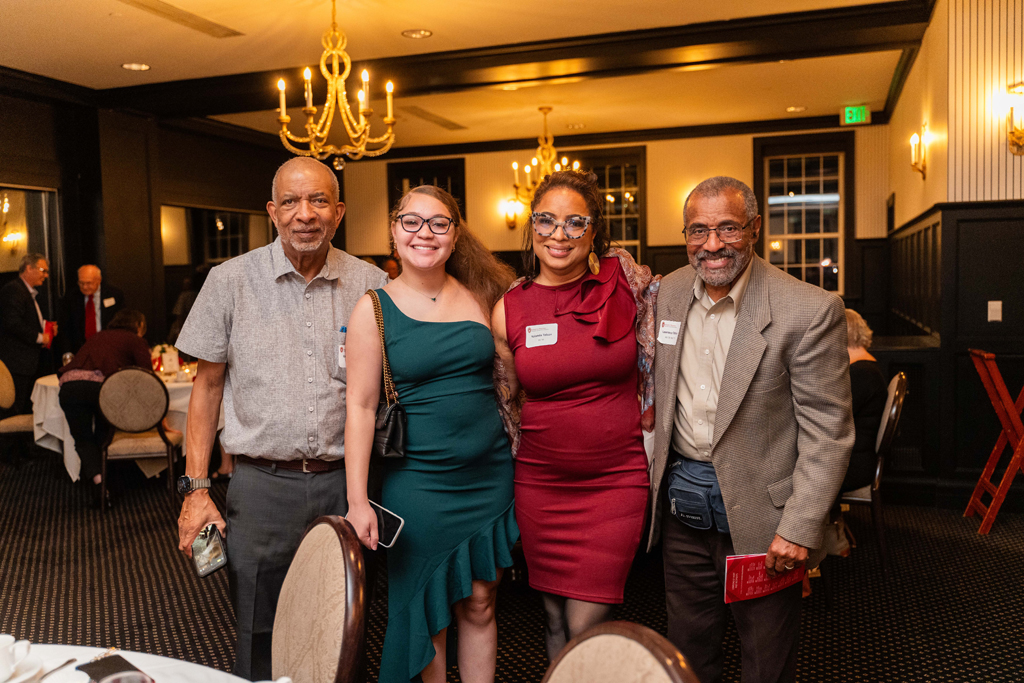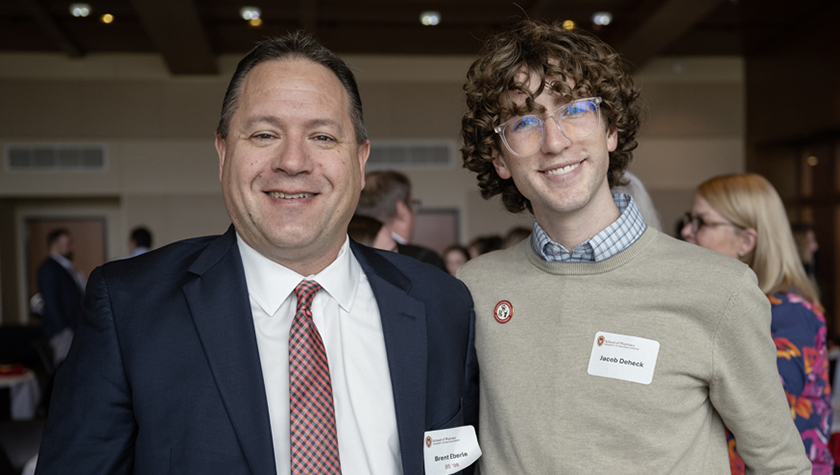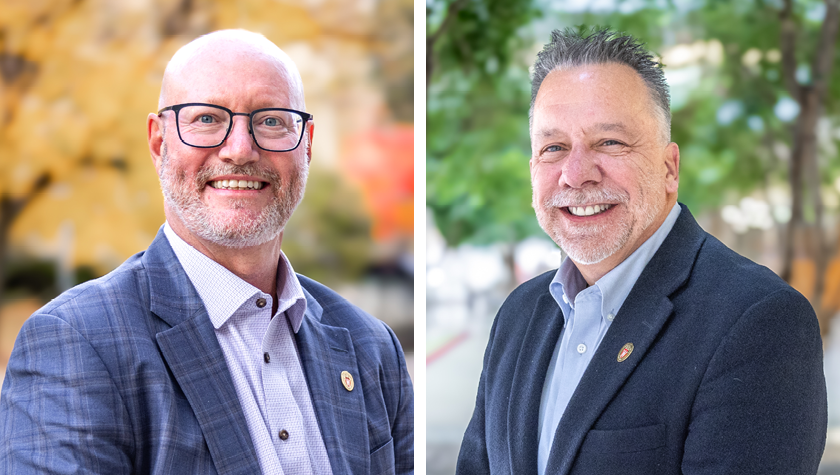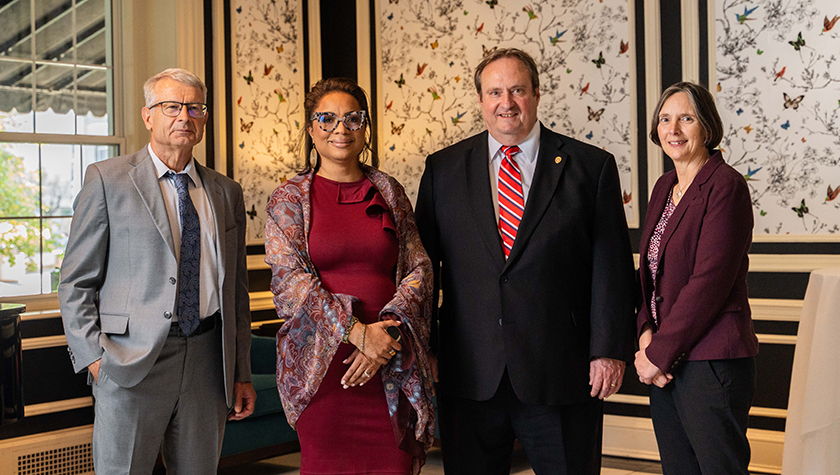
The School of Pharmacy's highest annual award recognizes laudable contributions to community pharmacy, academia, and industry
By Katie Ginder-Vogel
The Citation of Merit is the University of Wisconsin–Madison School of Pharmacy’s top annual honor, recognizing stellar contributions by alumni and friends of the School to the fields of pharmacy and pharmaceutical science. Continuing a tradition that stretches back more than 70 years, the 2024 Citation of Merit award winners are honored for their extensive contributions to community leadership, academic leadership, and industry leadership, advancing the field of pharmacy, improving patients’ lives through expanded access to medications, pharmacy education and research, new drug development, and generations of mentored practitioners.
The three 2024 honorees are:
- Yolanda Tolson (BS ’95), managing pharmacist, St. Vincent de Paul Charitable Pharmacy
- Lynne Taylor, Retter Distinguished Professor of Pharmacy, Purdue University
- Evgenyi Shalaev, Distinguished Research Fellow, AbbVie
“The School of Pharmacy is dedicated to advancing pharmacy practice, pharmaceutical research, and academic achievement. This year’s Citation of Merit awardees — Yolanda, Lynne, and Evgenyi — are exemplary models of this commitment,” says Steve Swanson, dean of the UW–Madison School of Pharmacy. “Their significant contributions to their respective fields and communities have had a profound impact, underscoring their and the School’s dedication to excellence.”
Photos by Paulius Musteikis
Yolanda Tolson (BS '95)
Leading Wisconsin's only charitable pharmacy
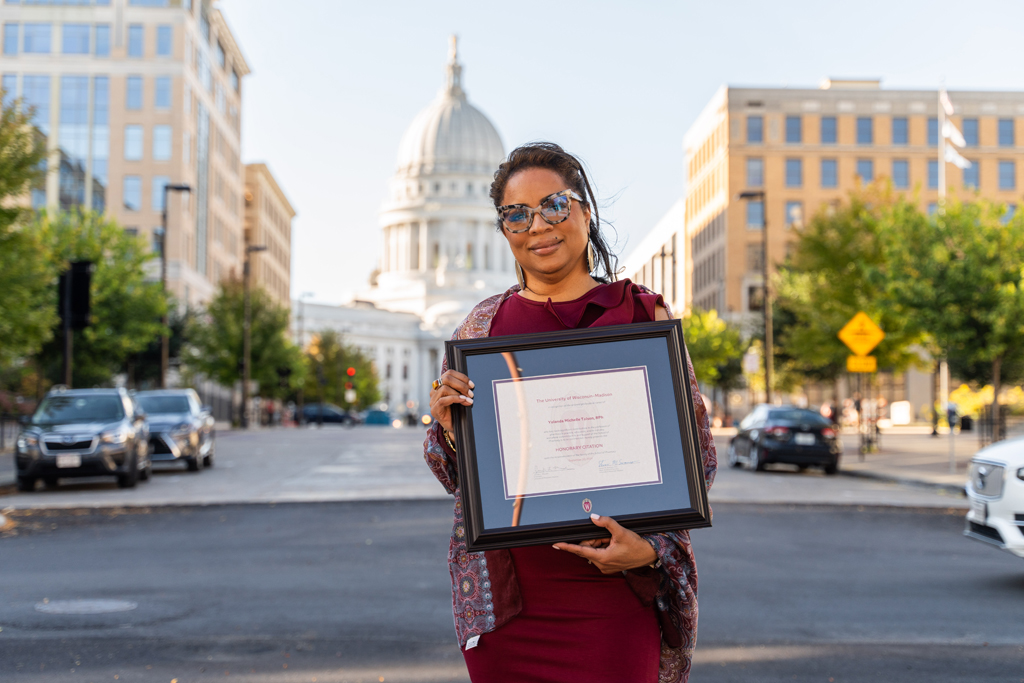
“Every day is different,” says Yolanda Tolson (BS ’95). As the managing pharmacist at the St. Vincent de Paul Charitable Pharmacy in Madison, Tolson oversees the only charitable pharmacy in Wisconsin, which opened in 2013 through a partnership with the School of Pharmacy.
The pharmacy serves hundreds of uninsured Madison-area community members who are below 300% of the federal poverty level, helping them access free prescription medications. Tolson oversees day-to-day operations and manages drug inventory through a combination of wholesale purchases, donated drugs, and free medications through patient assistance programs.
“Our core task is to provide care with compassion,” she says.
In the decades since her graduation, Tolson has retained close ties with the School of Pharmacy, serving as a faculty assistant for 16 years and a preceptor for 22 years.
“Our core task is to provide care with compassion.”
—Yolanda Tolson
“Students are a major inspiration for me,” Tolson says. “I see them as care extenders. They have an optimistic view of the future and renew my faith in the future of pharmacy and patient-centered healthcare.”
In January 2022, she also shared her expertise — both from St. Vincent de Paul and previous experiences in ambulatory care and federally qualified health clinics — in a School of Pharmacy webinar focused on how pharmacists can help reduce health disparities in vulnerable populations.
“I especially enjoy working with folks struggling to make it, to help them find solutions,” she says. “In most cases, I end up being inspired by their resilience, creativity, and willingness to help others, even when they are barely managing themselves.”
Tolson’s interest in pharmacy began in high school, when she researched pharmacy for an assignment her junior year.
“It immediately resonated with me,” she recalls. “I liked science and helping people. To me, it was a perfect fit.”
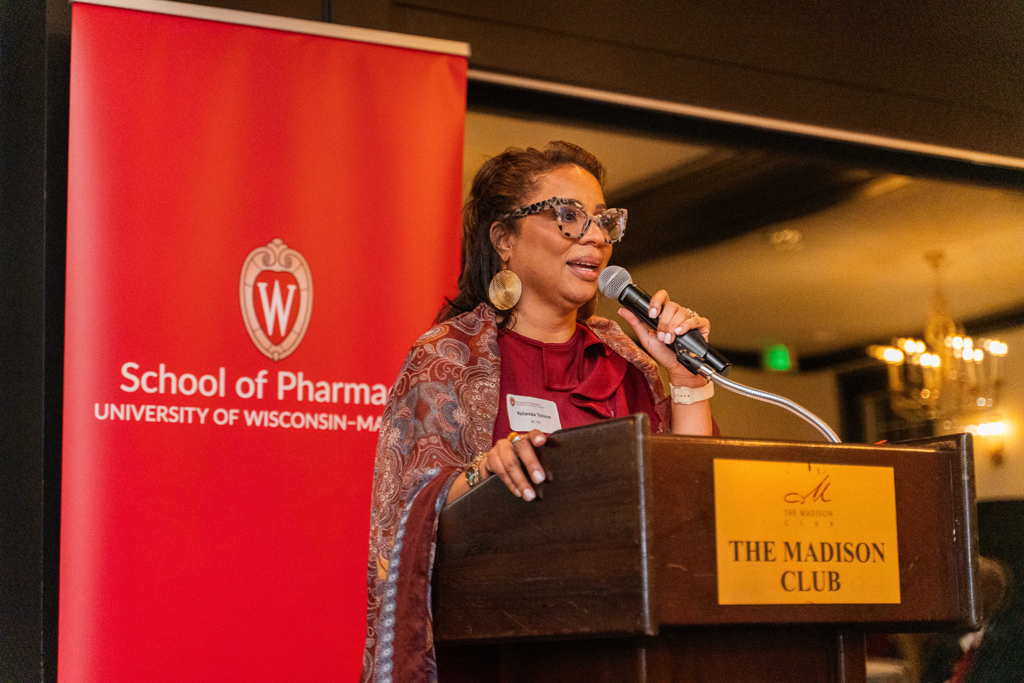
Tolson cites Theodore Roosevelt’s famous quote, “People don't care how much you know until they know how much you care," as her guiding principle.
“When I was a student, Professor Betty Chewning was incredibly kind and encouraging, helping me believe in my unique contributions,” says Tolson. “With her as a model, I take pride in also making meaningful connections with student pharmacists, helping them find their authentic voice, and building trust with patients, so they feel comfortable sharing information that enables me to assist them better.”
She is an honorary fellow of the UW School of Medicine and Public Health, member of Governor Tony Evers’ task force on reducing prescription drug prices, and co-founder of the Charitable Pharmacies of America — a network dedicated to medication access and equity. In 2017, she received the UW–Madison Community-University Partnership Award in recognition of her work with the St. Vincent de Paul Charitable Pharmacy and the School of Pharmacy to benefit community health.
“We are so grateful for Yolanda’s service, time, and impact on the broader Madison community and to our community at the School of Pharmacy,” says Professor Dave Mott (BS ‘88, MS ‘92, PhD ’95), associate dean for Advancement at the School and chair of the School’s Awards and Citations Committee.
Back to topLynne Taylor
Exploring drug delivery in academia

To Lynne Taylor, being a professor is “the best job in the world.”
“I enjoy interacting with graduate students and sitting down and digging through data, brainstorming interesting observations, and trying to come up with explanations as well as problem solving,” she says. “Those one-on-one discussions with graduate students — when we see new data and maybe come up with a crazy new idea that could be useful down the road — are the highlight of my day.”
Taylor is the Retter Distinguished Professor of Pharmacy at Purdue University in Indiana, where she works to understand release mechanisms from amorphous solid dispersions.
“I feel like we’ve made a strong contribution in this area,” she says. “These are important types of dosage forms these days. I’m very proud of our work.”
She first began this line of research at the UW–Madison School of Pharmacy, as a postdoc in the lab of then-Professor George Zografi.
“George [Zografi] taught me how to think through research problems and gave me a lot of freedom to explore my own scientific ideas.”
—Lynne Taylor
“I specifically came to Madison to work with George,” says Taylor, who earned her bachelor’s degree in pharmacy from the University of Bath and her PhD in pharmaceutical technology from the University of Bradford in the United Kingdom.
“George taught me how to think through research problems and gave me a lot of freedom to explore my own scientific ideas,” she says. “He taught me to ask the right questions, and beyond that, taught me what a fantastic mentor looked like and provided me with a roadmap for how to be an academic.”
After completing her postdoc, Taylor worked at AstraZeneca for five years, developing new products. Taylor soon realized she wanted to return to academia, where she could explore interesting phenomena in more depth. Through a connection she made while at the School of Pharmacy, she landed at Purdue.
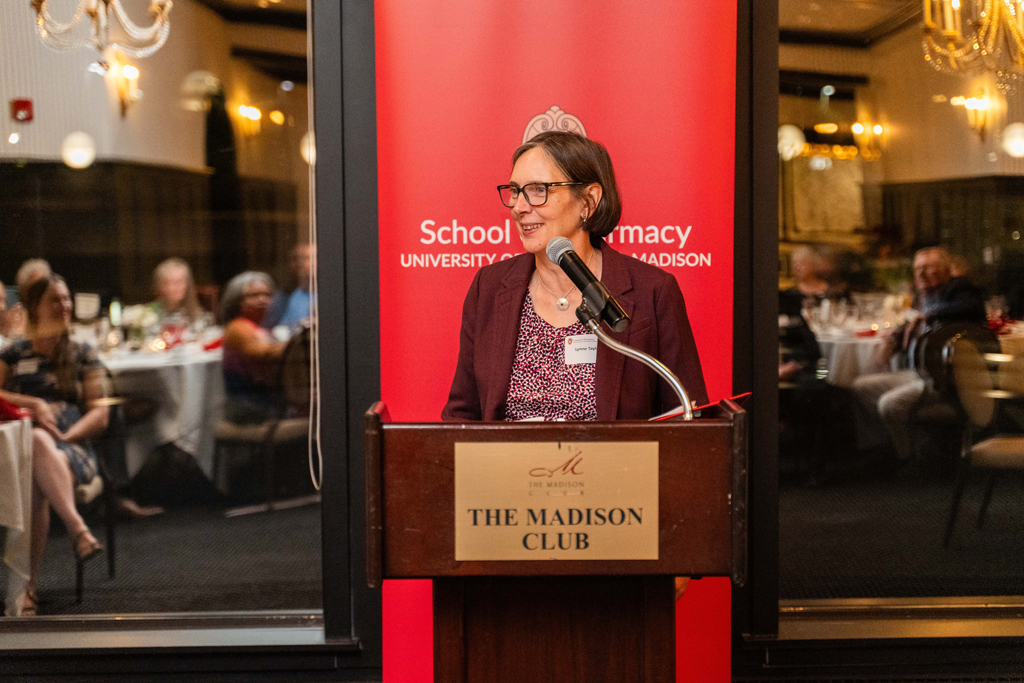
Across her career, Taylor has published more than 350 peer-reviewed articles and earned a range of awards, including the Coblentz Society Craver Award in Applied Vibrational Spectroscopy, the Journal of Pharmaceutical Sciences Ebert Prize, the Pharmaceutical Research Meritorious Manuscript Award, the Purdue University Provost’s Award for Outstanding Graduate Student Mentor, and the Dale E. Wurster Research Award from the American Association of Pharmaceutical Scientists. The Citation of Merit is her latest accolade.
“It’s a huge honor,” Taylor says of the recognition. “It was very unexpected, and I was delighted to be able to visit Madison for the awards ceremony and catch up with George Zografi.”
Taylor will again return to the School in April to deliver the Busse Lecture, which annually features an outstanding industrial pharmaceutical scientist.
“I have closely followed her brilliant independent research career, and in assessing the quality and impact of her research and associated activities, I would place her among the very top of those individuals in the pharmaceutical field who seek to improve the stabilization and biopharmaceutical properties of drug products by carrying out fundamental research,” says Zografi.
Connect with Lynne TaylorEvgenyi Shalaev
Solving scientific problems in the pharmaceutical industry

Before landing in Madison, Evgenyi Shalaev held the Royal Society Fellowship in Pafra Biopreservation at the University of Cambridge and worked at the Institute of Technical Carbon and the Institute of Molecular Biology in the USSR and Russia. His transition from Russia to the West was facilitated by major geopolitical changes, and he considers himself to be very lucky to work in the lab of then-Professor George Zografi.
“My experience with Dr. Zografi, professionally and personally, was extraordinary,” he says. “In terms of science, Dr. Zografi’s research group was one of the top labs in physical pharmacy and physical chemistry applied to pharmacy.”
As part of the Zografi research group, Shalaev continued his studies into phase transitions in aqueous systems during freezing and drying, freeze-drying, and phase diagrams and entered a new area of solid-state stability.
“I enjoy learning new things to solve scientific problems.”
—Evgenyi Shalaev
After about 21 months in Zografi’s lab, Shalaev completed another postdoc at Cornell University, and then moved on to Pfizer. After nearly 14 years with Pfizer, he then moved on to Allergan, and then to AbbVie, which acquired Allergan in 2020. As Distinguished Research Fellow at Abbvie in Irvine, California, Shalaev leads project teams in addressing problems that require an in-depth scientific understanding.
“I’m involved in various projects in different stages of development, from early development through regulatory filing for commercial licenses, as well as troubleshooting manufacturing processes of commercial products,” he says. “AbbVie is very science-oriented, so there is encouragement from management to solve problems by scientific understanding of underlying physical mechanisms.”
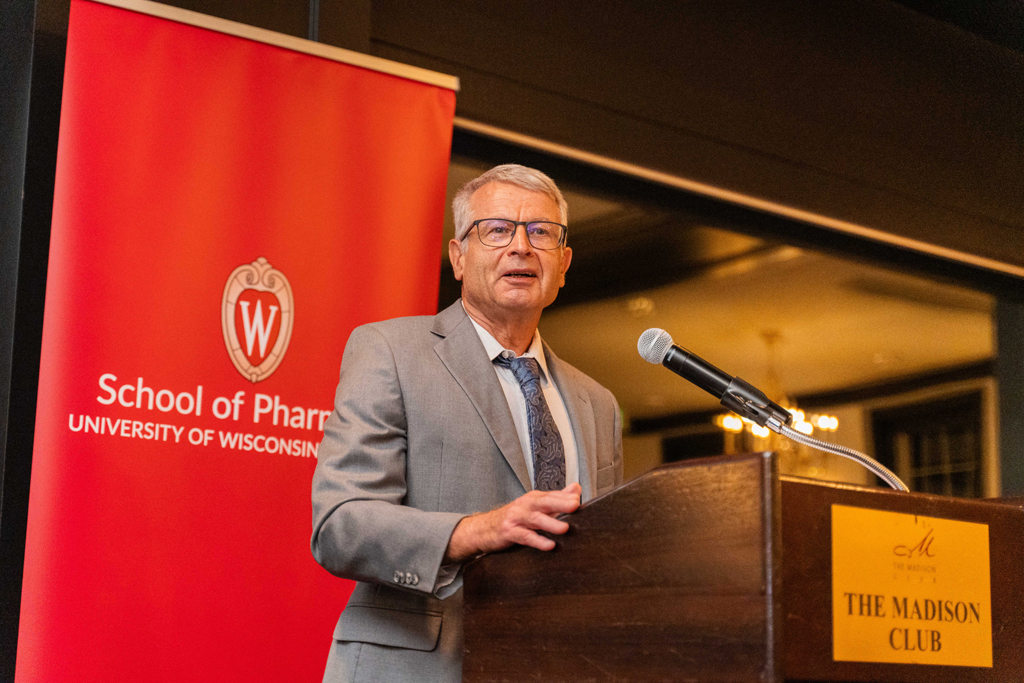
His research interests include amorphous and other disordered solids, chemical and physical stability of small molecules and biologicals, and the development and scale-up of freeze-drying processes. He pioneered studies of acid/base relationships and proton transfer in solid state, which formed the basis for improved strategies toward stabilization of freeze-dried formulations and solid dosage forms. His investigations on the structure of disordered materials, which highlight the unique role of water clusters in the stability of amorphous materials, represent another significant scientific contribution to pharmaceutical physical chemistry. His creative applications of advanced structural techniques — such as synchrotron X-ray and neutron scattering methods — to study frozen and freeze-dried pharmaceutical systems introduced a novel hypothesis on freeze-induced degradation and stabilization of biopharmaceuticals.
“I enjoy learning new things to solve scientific problems,” he says.
His penchant for learning has led to publishing more than 130 peer-reviewed papers, patents and patent applications, and book chapters; delivering more than 80 presentations at scientific conferences and universities around the world; teaching multiple academic and industrial short courses; and advising graduate students and postdoctoral fellows in several universities across the U.S. and Europe.
His productive and enjoyable collaboration with Zografi continues to date, producing 12 joint publications, including a 2024 paper on the structure of amorphous systems, which was published in a Journal of Pharmaceutical Sciences special issue honoring Taylor.
“Dr. Shalaev clearly has had a distinguished independent scientific and industrial career,” says Mott. “With his unique combination of fundamental scientific expertise and talent for addressing difficult technological challenges, based on science, he has led the way with extraordinary success and leadership in a number of great advances.”
Back to Top

